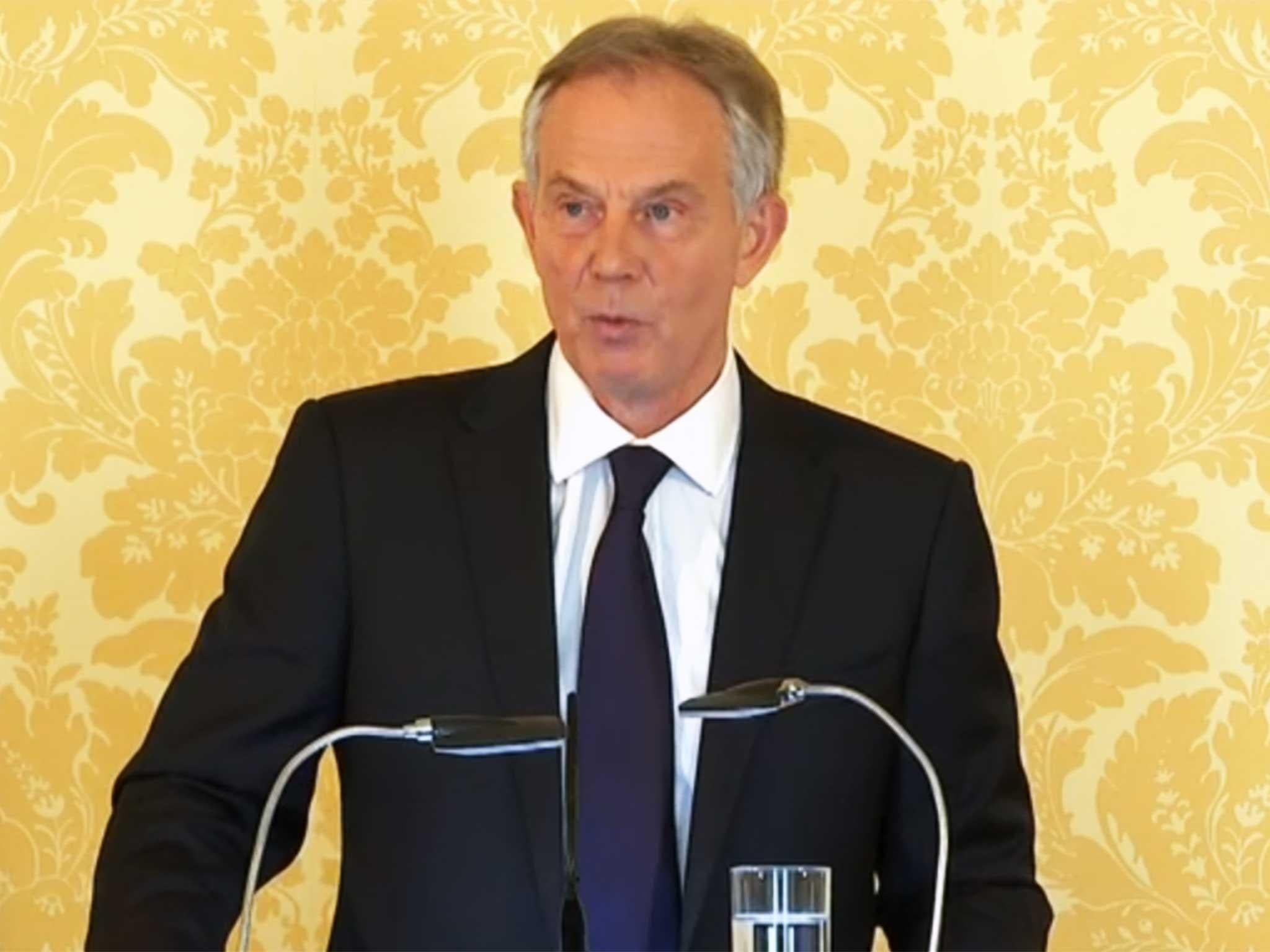Chilcot report released – as it happened: Blair refuses to say sorry for going to war
Former PM mounts lengthy defence for Iraq invasion

Your support helps us to tell the story
From reproductive rights to climate change to Big Tech, The Independent is on the ground when the story is developing. Whether it's investigating the financials of Elon Musk's pro-Trump PAC or producing our latest documentary, 'The A Word', which shines a light on the American women fighting for reproductive rights, we know how important it is to parse out the facts from the messaging.
At such a critical moment in US history, we need reporters on the ground. Your donation allows us to keep sending journalists to speak to both sides of the story.
The Independent is trusted by Americans across the entire political spectrum. And unlike many other quality news outlets, we choose not to lock Americans out of our reporting and analysis with paywalls. We believe quality journalism should be available to everyone, paid for by those who can afford it.
Your support makes all the difference.Here are the latest updates:
- Blair: I refuse to apologise for taking UK to war
- Senior Labour figure says former PM should be prosecuted
- Jeremy Corbyn condemns 'act of military aggression'
- Intelligence 'did not justify' UK's invasion of Iraq
- Tony Blair knew risk of post-Saddam chaos and terror
- PM told Bush: 'I'll be with you, whatever'
- Evidence was exaggerated and omitted to make case
- War chosen despite prospect of peaceful resolution
- Blair says he took decision 'in good faith'
- Bereaved sister calls Blair 'world's worst terrorist'
- Alastair Campbell cleared over 'dodgy dossier'
- Read the Chilcot report in full
Please allow a moment for the live blog to load
Sir John Chilcot has issued a damning 2.6 million word report into Britain's decision to invade Iraq at the end of a seven-year long inquiry.
Tony Blair's policy was founded on “flawed intelligence” and the process for deciding that the 2003 war was legal was “far from satisfactory”, it found.
The Iraq Inquiry found that Mr Blair's government presented evidence about Saddam Hussein's weapons of mass destruction (WMDs) “with a certainty that was not justified” and troops were sent in before all peaceful options had been exhausted.
Presenting a summary of his inquiry's findings, Sir John hit out at the “wholly inadequate” planning for the period after the fall of Saddam, which saw British troops involved in a prolonged and bloody occupation as terrorist groups gathered power and sectarian conflict spread.
The former Whitehall mandarin was setting out the findings of his inquiry into the UK's most controversial military engagement since the end of the Second World War, which left at least 150,000 Iraqis - mostly civilians - dead.
Although his inquiry did not express a view on whether the invasion was legal, Sir John criticised the way in which Mr Blair and his attorney general, Lord Goldsmith, had reached their decision on the legal basis.
Sir John said: “The circumstances in which it was decided that there was a legal basis for military action were far from satisfactory.”
Addressing the issue of WMDs, Sir John said the Joint Intelligence Committee should have made clear to Mr Blair that the intelligence had not established “beyond doubt” that Iraq had either continued to produce chemical and biological weapons or was continuing with efforts to develop a nuclear bomb.
“It is now clear that policy on Iraq was made on the basis of flawed intelligence and assessments,” Sir John said. “They were not challenged, and they should have been.”
Families of the 179 British soldiers killed in the conflict said they were considering legal action.
Join our commenting forum
Join thought-provoking conversations, follow other Independent readers and see their replies
Comments